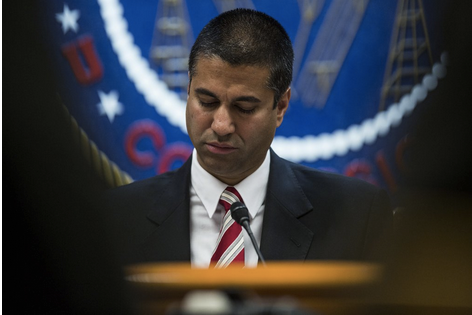Back in 2005, a small phone company based in North Carolina named Madison River began preventing its subscribers from making phone calls using the internet application Vonage. As Vonage was a competitor in the phone call market, Madison River’s action was obviously anticompetitive. Consumers complained, and the Federal Communications Commission, under Michael Powell, its Republican-appointed chairman, promptly fined the company and forced it to stop blocking Vonage.
That was the moment when “net neutrality” rules went from a mere academic proposal to a part of the United States legal order. On that foundation — an open internet, with no blocking — much of our current internet ecosystem was built.
On Tuesday, the F.C.C. chairman, Ajit Pai, announced plans to eliminate even the most basic net neutrality protections — including the ban on blocking — replacing them with a “transparency” regime enforced by the Federal Trade Commission. “Transparency,” of course, is a euphemism for “doing nothing.” Companies like Madison River, it seems, will soon be able to block internet calls so long as they disclose the blocking (presumably in fine print). Indeed, a broadband carrier like AT&T, if it wanted, might even practice internet censorship akin to that of the Chinese state, blocking its critics and promoting its own agenda.
Allowing such censorship is anathema to the internet’s (and America’s) founding spirit. And by going this far, the F.C.C. may also have overplayed its legal hand. So drastic is the reversal of policy (if, as expected, the commission approves Mr. Pai’s proposal next month), and so weak is the evidence to support the change, that it seems destined to be struck down in court.




